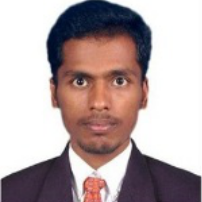International Journal of Information Technology and Computer Science (IJITCS)
IJITCS Vol. 6, No. 10, 8 Sep. 2014
Cover page and Table of Contents: PDF (size: 455KB)
Multiple Ranks Weighting Score for Microscopic Image Retrieval System
Full Text (PDF, 455KB), PP.42-47
Views: 0 Downloads: 0
Author(s)
Index Terms
Content Based Image Retrieval (CBIR), Computed Tomography (CT), Magnetic Resonance Imaging (MRI), Medical Image Management System (MIMS)
Abstract
Content based medical images have become a major necessity with the growing retrieving Advancements. CBIR access to medical images for supporting clinical decision making has been proposed that would be ease to manage large number of image in the database system. [4] In real time case only few systems has been developed and used in clinical environment. Content-Based Image Retrieval refers to image retrieval system that is based on visual properties of image objects other than textual annotation. Query image features compare with the database image features which is not exactly matching so image feature can be compare with the two tier approach in the database image in order to improve the accuracy of the retrieval system. Every day, large volume of different types of medical images such as MRI, CT images ultrasound, x-ray, radiology, etc are produced in different medical centre’s .microscopic image classification and discrimination (sub-type) [12] is the most difficult problem in medical image retrieval system. In this paper, the survey provides the suitable algorithm for retrieval and classification of medical image to improve the overall accuracy of the MIMS.
Cite This Paper
P. Suresh, L. Malliga, M. Vijay, "Multiple Ranks Weighting Score for Microscopic Image Retrieval System", International Journal of Information Technology and Computer Science(IJITCS), vol.6, no.10, pp.42-47, 2014. DOI:10.5815/ijitcs.2014.10.06
Reference
[1]W. Hsu, L. R. Long, and S. Antani, “Spirs: A framework for content- based image retrieval from large biomedical databases,” Stud. Health Technol.Informat., vol. 129, no. Pt. 1, pp. 188–192, 2007.
[2]D. Iakovidis, N. Pelekis, E. Kotsifakos, I. Kopanakis, H. Karanikas, and Y. Theodoridis, “A pattern similarity scheme formedical image retrieval”, IEEE Trans. Inf. Technol. Biomed., vol. 13, no. 4, pp. 442–450, Jul 2009.
[3]L. Yang, O. Tuzel,W. Chen, P.Meer, G. Salaru, L. Goodell, and D. Foran, “Pathminer:Aweb-based tool for computer-assisted diagnostics in pathology,” IEEE Trans. Inf. Technol. Biomed., vol. 13, no. 3, pp. 291-229,MAY 2009.
[4]H. L. Tang, R. Hanka, and H. H. S. Ip, “Histological image retrieval based on semantic content analysis,” IEEE Trans. Inf. Technol. Biomed vol. 7,no. 1, pp. 26–36, Mar. 2009.
[5]J. Luo and D. Crandall, “Color object detection using spatial-color joint probability functions,” IEEE Trans. Image Process., vol. 15, no. 6,pp. 1443–1453, Jun. 2006.
[6]C.-R. Shyu, C. E. Brodley, A. C. Kak, A. Kosaka, A. M. Aisen, andL. S. Broderick, “Assert: A physician-in-the-loop content-based retrieval system for HRCT image databases,” Comput. Vis. Image Understand.,vol. 75, no. 1–2, pp. 111–132, 1999.
[7]D. Iakovidis, N. Pelekis, E. Kotsifakos, I. Kopanakis, H. Karanikas, andY. Theodoridis, “A pattern similarity scheme formedical image retrieval,” IEEE Trans. Inf. Technol. Biomed., vol. 13, no. 4, pp. 442-450, Jul. 2009.
[8]R. M. Haralick, K. Shanmugam, and I. Dinstein, “Textural features for image classification,” IEEE Trans. Syst., Man Cybern., vol. 3, no. 6,pp 610–621, Nov. 1973.
[9]M. M. Rahman, P. Bhattacharya, and B. C. Desai, “A framework for medical image retrieval using machine learning and statistical similarity matching techniques with relevance feedback,” IEEE Trans. Inf Technol.Biomed., vol. 11, no. 1, pp. 58–69, Jan. 2007.
[10]M. M. Rahman, P. Bhattacharya, and B. C. Desai, “A framework for medical image retrieval using machine learning and statistical similarity matching techniques with relevance feedback,” IEEE Trans. Inf Technol.Biomed., vol. 11, no. 1, pp. 58–69, Jan. 2007.
[11]M.Henning Muller, M.Nicolas Michoux and B.David Bandon Geissbuhler“A Review of Content Based Image Retrieval Application- Clinical Benefits And Future Directions”,in Division for Medical Informatics, University Hospital of Geneva 2nd vol published in http://mirc.rsna.org.
[12]M.Mahmudur Rahman, Sameer K.Antani, and George R Thoma,”Alearning based similarity fusion and filtering approach for biomedical image retrieval Using SVM Classification and Relevance Feedback”,IEEE Trans on information technology in biomedicine, vol. 15, no. 4, july 2011.
[13]Behjat Siddiquie1 Rogerio S. Feris2 Larry S. Davis1, “Image Ranking and Retrieval based on Multi-Attribute Queries”, 2011 IEEE Conference Computer Vision and Pattern Recognition (CVPR), on 20- 25 JUNE 2009.
[14]Hatice Cinar Akakin and Metin N. Gurcan, Senior Member, IEEE Content-Based Microscopic Image Retrieval Systemfor Multi-Image Queries” IEEE Transactions on information technology in biomedicine, vol. 16, no. 4, july 2012.
[15]Mohd. Anjum, Md. Asraful Haque, Nesar Ahmad,” Analysis and Ranking of Software Reliability Models Based on Weighted Criteria Value”, I.J. Information Technology and Computer Science, 2013, 02, 1-14 Published Online January 2013 in MECS (http://www.mecs-press.org/)
[16]Anamika Ahirwar,” Study of Techniques used for Medical Image Segmentation and Computation of Statistical Test for Region Classification of Brain MRI,” I.J. Information Technology and Computer Science, 2013, 05, 44-53.


